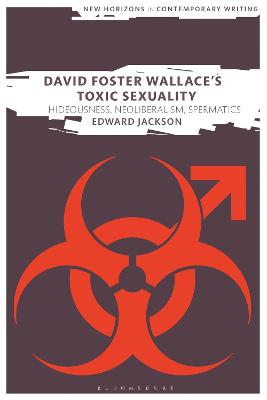New Horizons in Contemporary Writing
1 total work
David Foster Wallace’s Toxic Sexuality: Hideousness, Neoliberalism, Spermatics is the first full-length study of perhaps the most controversial aspect of Wallace’s work – male sexuality. Departing from biographical accounts of Wallace’s troubled relationship to sex, the book offers new and engaging close readings of this vexed topic in both his fiction and non-fiction. Wallace consistently returns to images of sexual toxicity across his career to argue that, when it comes to sex, men are immutably hideous. He makes this argument by drawing on a variety of neoliberal logics and spermatic metaphors, which in their appeal to apparently neutral economic processes and natural bodily facts, forestall the possibility that men can change. The book therefore provides a revisionist account of Wallace’s attitudes towards capitalism, as well as a critical dissection of his approach to masculinity and sexuality. In doing so, David Foster Wallace’s Toxic Sexuality shows how Wallace can be considered a neoliberal writer, whose commitment to furthering male sexual toxicity is a disturbing but undeniable part of his literary project.
